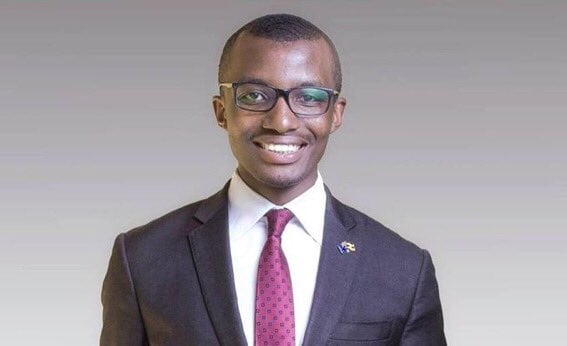Prime
The price of democracy pretensions

Author: Moses Khisa. PHOTO/FILE
What you need to know:
- There is a bigger argument to be made about the flaws and failings of democracy across the African continent, in fact an even broader observation about the failed promises of democratic government around the world.
I prefer to more accurately call it a rulership, or more precisely a military regime. That is what we have in the Uganda of Mr Yoweri Museveni.
But there is something else, arguably more corrosive and cunning than one would find in a true military rulership of the Idi Amin stripe: the pretence to being democratic, putting up a façade that entices and grants false hope to citizens ostensibly engaged in democratic processes.
This is what we can decipher from the theatrics and empty motions that play out at parliament with members of the public believing that they have democratically elected representatives who are their voices.
It is also in the same vein, as I argued last week, that we hold to the (false?) hope of intrepid and insurgent Ugandans using Twitter to expose financial malfeasance and demand for accountability.
The appearances of democracy and the pretence to being democratic are enough for the rulers to lull citizens or at best to lure them into chasing shadows!
There is nothing as exhausting yet unyielding as believing that you have a voice yet in practice yours is inconsequential, or that you have power to hold political leaders accountable when in fact they know how to game the system and bypass whatever scrutiny citizens may attempt to impose. In the end, it is all hollow.
There is a bigger argument to be made about the flaws and failings of democracy across the African continent, in fact an even broader observation about the failed promises of democratic government around the world.
I have said a thing or two on this in this space in the past and can return to it in the future, but for now we need to give specific focus to Uganda’s specific context and circumstances.
Historical amnesia and the failure to grasp the trajectory leading to the present situation means that many of us looking at matters of our current predicament inevitably make inaccurate commentaries and faulty conclusions. Our esteemed rulers have made it appear like Uganda started in 1986, so it is only fair we can hold them to say standard and start the analysis there.
Notwithstanding what went wrong in the two decades of independence preceding 1986, a lot, to be sure, we need to only recall what the 1986 promise was: a fundamental change in the politics of the country.
Nearly four decades later, almost twice the period between independence and when the current rulers took over, we really have had a fundamental lie. In hindsight, the euphoria and optimism of 1986 was ill-conceived, for a group that seized power through the forces of arms and callous spilling of blood was always going to be loyal to the tool what gave them power – the gun.
Ultimately, the goal and mission was not to bring about a free, democratic and prosperous Uganda; rather, it was to pursue power and perpetuate the rule of those who had used guns to seize power.
In the main, that has been the record of the 1986 rulers. There is no other way to see this considering that a group, or perhaps more specifically an individual, wants to rule a country in perpetuity.
In the true spirit of wanting to earnestly make a contribution for the common good, leaders and organisations stay at the helm for a limited time, make a contribution and go away ceremoniously and honourably.
For Uganda’s current rulership, by contrast, the plan appears to be to rule for as long, until when the shock of forced and unceremonious deposing knocks hard on the door.
As part of what now, again with hindsight, was a grand plan of ruling the country for as long as nature can permit, we were given a sweetener called the 1995 constitution that supposedly ushered an era of democratic governance, personal freedoms, rule of law and human rights protection. It has turned out to be a mirage.
Hapless Ugandans are incarcerated for merely being supporters of those opposed to the rulership as the Constitution is flagrantly violated and the judicial branch of government is rendered incapable of assuring justice.
Even if we set aside the fact that the Constitution has been repeatedly amended at the whims and preferences of the rulers, something that should never happen in a society that cherishes constitutionalism, the original 1995 Constitutional text was in the main a flawed document.
It only helped wow us with the feeling of an empowered citizenry that had expressed its voice through the views the Constitutional Commission gathered and the Constituent Assembly deliberations.
The rulers knew what they were up to, and they got what they wanted: a constitution that granted excessive, and in some instances unlimited, powers to one office holder – the president.
That was a most fundamental flaw that made the 1995 Constitution perilous. A powerful and unrestrained president who, at any rate, can turn to the gun logically becomes an imperial president, a life president. No way can we have genuine democracy, where there is true accountability and citizens’ voice, under such a system.
Mr Moses Khisa,
[email protected]




